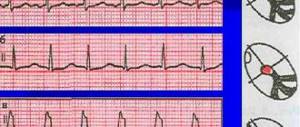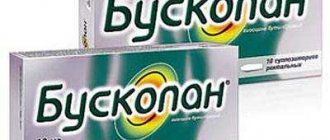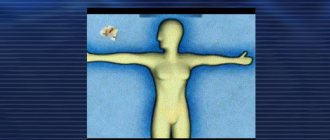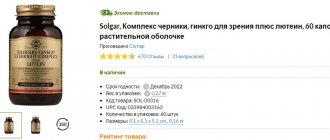Cystitis is inflammation of the bladder. The disease can occur for various reasons (hypothermia, poor nutrition, chronic infections). Unpleasant symptoms appear that cause a lot of inconvenience and discomfort.
To get rid of cystitis and relieve the symptoms of the disease, doctors prescribe complex treatment, including taking pills. Pharmacies offer a huge selection of drugs of different price categories, with different spectrum of action, which are taken for treatment. For therapy to be effective, medications must be prescribed by a doctor.
The mechanism of development of cystitis, its consequences and methods of relief
Bladder inflammation in most cases is caused by an inflammatory process in the urinary tract. If not treated in a timely manner, the pathology spreads higher and reaches the bladder. If timely assistance is not provided at this stage, the inflammatory process expands even more and leads to kidney problems.
Usually it all starts with urethritis. What can trigger inflammation in the urinary tract? Here are several possible reasons:
- Ingress of pathogenic microflora. In this case, microorganisms begin to actively multiply and provoke an inflammatory-infectious process in the mucosa, which gradually increases the affected area.
- Activation of one’s own opportunistic microflora under the influence of unfavorable factors. Such factors include hypothermia, nervous feelings, self-medication, lack of hygiene and other reasons.
- Infection from other infected organs. Inflammation of the bladder may be the result of kidney problems or other diseases.
If cystitis is treated incorrectly, there is also a danger of it becoming chronic. In this case, the symptoms of the disease will be sluggish, but the inflammatory and infectious process will be constantly present in the bladder. This condition is dangerous, since the likelihood of infection spreading remains, and over time this may even affect the structure of the bladder tissue.
Treatment tactics will depend on the cause and nature of the course of cystitis. Acute inflammatory processes caused by provoking factors can usually be stopped in the initial stages with the help of anti-inflammatory drugs and often even of herbal origin. If the process is advanced and the etiology is infectious, the use of antibacterial drugs will be required. Only a doctor should make such a prescription, since not all antibiotics are suitable for treating urinary tract infections.
The treatment regimen also includes symptomatic medications. They are necessary to alleviate the patient’s condition, since cystitis is accompanied by severe pain, discomfort and deterioration of the woman’s psycho-emotional state. Thus, treatment of cystitis is usually carried out comprehensively. Drugs that can be used for this are discussed further.
Comparison of funds
In the table below we present the comparative characteristics of each drug in a visual form.
| Drug name | Manufacturer country | Type of drug | Release form |
| Furadonin | Latvia | Antibiotic | Pills |
| Monural | Switzerland | Antibiotic | Tablets, Suspension, powder, granules |
| Papaverine | Russia | Antispasmodic | Tablets, suppositories, injections |
| Baralgin | India | Pills | Antispasmodic drug |
| Palin | Slovenia | Capsules | Antibiotic |
| Levofloxacin | Russia | Tablets, injections | Antibiotic |
| Diflucan | France | Capsules, injections | Antifungal agent |
Antibacterial agents for the treatment of cystitis
Antibiotics for cystitis are prescribed if a pathogenic pathogen has been identified or in cases where the disease is severe and long-lasting. If the doctor has prescribed an antibiotic, the woman needs to strictly adhere to the prescribed treatment regimen and not interrupt it. If the doctor’s instructions are not followed, the likelihood of the pathology becoming chronic and causing more complex treatment in the future increases. Modern antibiotics have a wide spectrum of action, effectively kill pathogenic microflora and quickly normalize the patient’s condition. Because cystitis is so painful, doctors prefer to prescribe broad-spectrum medications without waiting for urine bacterial culture results.
Antibacterial agents that can be used to treat cystitis:
- Preparations based on norfloxacin. Examples include Nolicin, Normax, Norbactin. These are drugs with a wide spectrum of antibacterial action that effectively kill a large list of pathogenic microorganisms. Such drugs are often prescribed when other drugs are ineffective, so they are not suitable for self-medication.
- Monural. A relatively new drug that quickly gained popularity due to its high effectiveness and ease of use. It is an antibacterial agent against urinary tract infections. Often used as treatment until urine culture results are available. It is very effective in acute conditions and is not used for chronic cystitis, since it is not prescribed for a course of treatment, but is used only once.
- Palin. Antibacterial drug from the group of quinolones based on pipemidic acid. A fairly effective remedy for the treatment of cystitis, as well as infectious diseases of the kidneys and urinary tract.
- Nitroxoline. An antibacterial agent with a high percentage of accumulation in the urine, due to which it is effectively used to treat infectious lesions of the excretory system.
- Nevigramon. An expensive product, but highly effective. The main active ingredient is nalidixic acid.
- Furagin. This and other drugs of the nitrofuran group have antimicrobial and uroantiseptic properties. They belong to an inexpensive price category and are used by the course.
- Rulid. A strong antibacterial drug with a broad spectrum of action. Belongs to the group of macrolide antibiotics. For cystitis, it is prescribed only by a specialist if other types of treatment are ineffective, as it has many side effects.
Penicillins and cephalosporins
In acute inflammation of the bladder, penicillins are an alternative to fluoroquinolones. Amosin is an inexpensive product from this group.
The second group is Amoxicillin Clavulanic acid. Produced under the trade names Augmentin, Flemoklav Solutab, Amoxiclav.
It is possible to take this group during the period of bearing a child. If for some reason a pregnant woman cannot take fosfomycin or nitrofurans, then she is prescribed these broad-spectrum antibiotics for a course of 7 days.
Herbal remedies for cystitis
Many medicinal plants also have antibacterial properties. Some of them are used in official medicine to treat cystitis and inflammation of the urinary tract.
In terms of potency, herbal remedies are inferior to synthetic drugs, but in the initial stages of the inflammatory process they can be considered a full-fledged method of therapy. Depending on the severity of the pathological process and the clinical picture, herbal remedies can be the main or auxiliary method of treatment. In addition, the remedies described below can be effectively used to prevent exacerbations in people who are predisposed to such a problem or have chronic cystitis.
- Lingonberry leaves. One of the most popular folk remedies used for inflammatory processes of the urinary organs. Lingonberry leaves are included in diuretic preparations and are also sold in pharmacies as dry raw materials. This plant has a pronounced anti-inflammatory, diuretic and astringent effect. Particular activity was found against Staphylococcus aureus. As part of a comprehensive treatment regimen, lingonberry leaves help increase the level of general and local immunity, as well as the effectiveness of antibacterial therapy.
- Cyston. A medicinal product based on a combination of several plants. A complex effect is manifested - anti-inflammatory, antimicrobial, diuretic. This set of effects allows you to quickly remove the pathogen from the source of inflammation, reduce the pathological process and accelerate the healing of damaged mucosa. With monotherapy, the therapeutic effect will be noticeable only with long-term use.
- Canephron. Available in the form of dragees and drops, it contains several herbal ingredients. It is considered one of the best herbal remedies for combating acute and chronic cystitis. The duration of therapy is determined by the doctor individually for each patient. Additionally, it has an antispasmodic effect, which makes urination easier and reduces pain.
- Monurel. A herbal medicine based on cranberry extract, which, together with lingonberries, is an effective means of combating inflammation of the urinary tract. It exhibits a complex effect - relieves inflammation, reduces pain, suppresses the activity of the pathogen. Recommended as a prophylactic for people with weakened immune systems in the urinary tract area.
- Phytolysin. The drug is in the form of a paste from which a suspension for oral use is prepared. Phytolysin has a diuretic, antimicrobial, analgesic and anti-inflammatory effect. In addition, Phytolysin paste helps dissolve urinary stones and wash away sand.
How is the disease treated?
Therapeutic measures to eliminate cystitis should be carried out under the supervision of the attending physician after diagnosis. Treatment of cystitis in men can be carried out using drugs from various groups or a combination of them.
Antibiotics
Only a doctor can prescribe medications in this group, since incorrect use leads to complications or the disease becoming chronic. In men, the most commonly used drugs for cystitis are:
- Monural. A drug for accelerated treatment of cystitis. Taken orally 1 time per day. For mild cases, a single dose is sufficient.
- Nitroxoline. Antibacterial and antifungal agent.
- Nolitsin. The tablets must be taken 2 times a day for 7 days.
- Rulid. A drug that stimulates the activity of leukocytes improves the body's protective functions.
Antispasmodics
Antispasmodics are aimed at eliminating painful discomfort and normalizing the frequency of muscle contractions. The most famous drug of this group is No-spa. Treatment regimen: from 120 – 240 mg, which is enough for 3 doses. Drink no more than 80 mg per dose. No less well-known painkillers:
- Bendazole;
- Papaverine;
- Bencyclane.
Anti-inflammatory drugs are prescribed in parallel with antibiotics. These include:
- Nimesil;
- Ibuprofen;
- Indocollier.
Taking pills for cystitis should be taken strictly according to the doctor’s instructions, since improper use can lead to:
- stroke;
- problems with the gastrointestinal tract;
- bleeding;
- blood clot formation.
Uroseptics
A group of antibacterial drugs aimed at eliminating infection, the main substances of which are concentrated in the inflamed area. The most used uroseptics:
- Nolitsin. Antibiotic of the second generation of fluoroquinolones. Take 1 tablet 2 times a day.
- Monural. Product produced in granules. Application: once before bedtime, after emptying the bladder.
- Canephron. An organic drug prescribed for prophylactic purposes, in combination with antibiotics or as an independent medicine.
- Cyston. The duration of treatment is 6 – 12 weeks. Directions for use: 2 tablets 3 times a day.
- Cystenal. Drops. The course of therapy is 4 weeks, 4 drops 3 times a day. Dissolve in clean water and drink 30 minutes before meals.
Phytotherapy
Healing herbs in the form of medications, teas, and decoctions are prescribed only by a doctor in addition to antibacterial agents. The most popular herbal remedies:
- Cyston. Prescribed for stones in the genitourinary area.
- Monurel. Tablets with a high content of vitamin C and cranberry powder, aimed at removing bacteria from urine.
- Canephron. Aimed at eliminating pain, it consists of a combination of plants: rosemary, rose hips, centauria, lovage.
- Phytolysin. Paste of herbal extracts and oils: pine, rosemary, orange. Acts as an antispasmodic, anti-inflammatory, diuretic.
Homeopathy therapy is aimed at eliminating the disease and increasing immunity. The drugs in this group affect the body as a whole and contribute to improvement. Treatment of chronic infection in mild form lasts up to 90 days, in severe cases much longer. Homeopathic remedies for the treatment of male cystitis:
- Barberry;
- Borax;
- Horsetail;
- Hemp seed.
This is not the entire list for the treatment of acute and chronic inflammation in men, which is prescribed separately or in combination with the following drugs:
- Arnica;
- Cantharis;
- Rekta;
- Mercuris;
- Natrium.
What else is prescribed for cystitis?
In addition to medications that affect the pathogen in infectious cystitis, other agents can also be used in complex therapy. Their purpose is to alleviate the patient’s condition, stop the pathological process and accelerate the regeneration of the mucosa. Such means include the following:
- Antispasmodics. During cystitis, the mucous membrane of the urinary tract and bladder is severely inflamed, and the alkaline reaction of the urine provokes pain with each urination. In addition, the patient’s frequency of going to the toilet increases significantly, as irritated receptors constantly send false signals to the brain. Drugs from the group of antispasmodics, typical representatives of which are No-shpa or Drotaverine, can eliminate pain and help patients.
- Anti-inflammatory drugs. In some quantities they are excreted by the kidneys, therefore they have a local anti-inflammatory effect, thereby reducing the severity of the clinical picture. Among these medications are ibuprofen-based products, which are sold under different trade names.
- Probiotic preparations. These are products that contain cultures of beneficial bacteria and help normalize the balance of microflora. This prescription is justified if cystitis does not occur in isolation, but is accompanied by inflammatory processes in the gynecology or intestines. By normalizing the balance of microflora, you can naturally suppress the excessive activity of pathogenic bacteria. For such purposes, you can use the following drugs: Hilak forte, Acipol, Bifiform, Lactuvit, Linex.
The duration of treatment for uncomplicated cystitis can be about 3 days.
What medications are used?
In complex therapy for effectiveness, the doctor prescribes the following drugs:
- antibiotics;
- painkillers;
- diuretics;
- antispasmodic.
Medicines can also be prescribed to enhance immunity, since cystitis is an infectious disease that causes a significant weakening of the body's protective function , as well as preparations for local use, for example, herbal preparations for douching or infusions.
Depending on the degree and specificity of the disease, as well as the characteristics of the patient’s body, the doctor forms general therapy and selects medications. If you decide to resort to self-medication and choose medications to treat the disease, you should take into account the following criteria when purchasing a medicine:
- efficiency;
- safety;
- price;
- ease of reception.
Several drugs have proven themselves to be affordable and effective tablets for the treatment of cystitis. Let's look at their main properties, side effects, and method of administration.
Furagin and Furadonin
These yellow tablets belong to the group of antimicrobial drugs - uroantiseptics. They have been used for many years to treat cystitis and have not yet lost their relevance. The popularity of the drugs is explained by the fact that they are relatively inexpensive , accessible, and also effective.
The course of taking tablets lasts 7-10 days . It is necessary to take the medicine after meals 3-4 times a day, and the dosage of the drug is calculated individually. On average it is about 100 mg. The effect of taking the funds is noted on the 2nd day after the start of the course.
The main disadvantage of these drugs is the presence of a large number of side effects. These include: headache, nausea, gastrointestinal dysfunction, allergic reactions.
These drugs are not suitable for patients with impaired functioning of the cardiovascular system, liver and kidney problems.
Contraindications for use also apply to children under 8 years of age, pregnant and lactating women .
Amoxiclav
The active ingredients are amoxicillin and clavulanic acid, which blocks the protective mechanisms of pathogenic microorganisms , providing amoxicillin with unhindered access to them.
Prescribed for breastfeeding. The drug enters the baby's body through breast milk, but its negative effect is minimal.
The drug is available in the form of powder for suspension and tablets. Usually Amoxiclav is taken every 6 to 8 hours three to four times a day. It is necessary to undergo a course of therapy lasting 5–14 days.
Monural
An antibiotic that belongs to antimicrobial drugs. It destroys almost all types of microorganisms that affect the genitourinary system. The drug is taken once before bedtime .
The effect of Monural will increase if you take the medicine after the bladder has been emptied.
The effect of taking the drug becomes noticeable after 3-4 hours: pain is reduced, burning and discomfort are relieved. The only restriction in taking Monural is age-related. It should absolutely not be taken by children under 5 years of age. Pregnant and lactating women can be treated with Monural, but only under medical supervision. Possible side effects:
- increased sensitivity;
- diarrhea;
- nausea, vomiting, heartburn.
The drug is available in several forms: powder, granules and suspension.
Nolitsin
An antibacterial agent of the fluoroquine series, belonging to the group of antimicrobial drugs. The active ingredient is norfloxacin. Take one tablet twice a day . On average, the course of treatment takes up to 7 days for acute cystitis, and for relapses of a chronic disease it can take up to 6 weeks.
A positive property of Nolitsin is that the active substance is retained only in the urine and is excreted from the body when urinating, so it does not accumulate in tissues and blood.
Contraindications include age: the drug is not recommended for use by adolescents (under 18 years of age), it can also negatively affect the formation of the fetus and the development of the child, therefore it is not prescribed to pregnant and lactating women.
It should not be taken by people with epilepsy or liver dysfunction.
Possible side effects:
- nausea and vomiting;
- bitterness in the mouth;
- loss of appetite;
- diarrhea;
- polyuria;
- bleeding when urinating;
- migraine;
- sleep disorders;
- candidiasis;
- itching and burning of the skin;
- swelling;
- fainting and dizziness.
Nitroxoline
Nitroxoline is an antibiotic, also known as 5 NOC. It belongs to the broad-spectrum hydroxyquinolines. It effectively fights various types of genitourinary system infections and also has an antifungal effect .
Take the medicine 4 times a day, 2 tablets 20 minutes after meals. It is contraindicated for people suffering from kidney or liver failure.
It is strictly forbidden to take Nitroxoline to pregnant women and during lactation.
Caution should be exercised when taking the drug for those who are prone to allergic reactions, as well as people with disorders of the cardiovascular system. Side effects include :
- nausea and vomiting;
- lack of appetite;
- allergic reactions;
- headache;
- neuritis.
This drug is cheap, the average cost of Nitroxoline in Russia is 83 rubles.
Urolesan
A herbal preparation with antiseptic and diuretic effects.
The drug is available in the form of drops, capsules and syrup. Capsules are prescribed only to patients over 14 years of age, 1 tablet 3 times a day. The syrup is intended for the treatment of children, the dosage depends on age. Drops can be taken by children from 7 years old, 5 drops 2 times a day, from 14 years old - 8-10 drops 3 times a day after meals.
Side effects of the drug include dizziness and nausea , as well as allergies in case of sensitivity to the components of the drug. The price of Urolesan depends on the form of release.
Ceforal
Ceforal is a new generation antibiotic, which is available in a special form - solutab. Capsules consist of pressed granules that easily dissolve in water. The course of taking the drug is 7-14 days , depending on the degree of development of the disease.
You can take the drug regardless of meals. The product is contraindicated for pregnant and lactating women and the elderly. Side effects include dizziness, vomiting, allergic reactions, and diarrhea. The average cost of the drug is 500 rubles.
Ciprofloxacin
Belongs to the group of antibacterial antibiotics . The drug is taken 1-2 tablets 2-3 times a day after meals. Ciprofloxacin is not recommended for people suffering from diseases of the gastrointestinal tract, cardiovascular system and epilepsy.
Not suitable for use by pregnant and lactating women.
Adverse reactions:
- allergy;
- negative reactions from the gastrointestinal tract (vomiting, diarrhea);
- dizziness and weakness;
- headache;
- sleep disorders;
- decreased appetite.
Tetracycline
a broad-spectrum antibiotic drug that has an antimicrobial and anti-inflammatory effect on the body. It is used in therapy against cystitis and other ailments of the genitourinary system (mainly infectious).
The course of treatment is from 5 to 7 days. Adults are prescribed 1 tablet 4 times a day, children over 8 years old - 0.5 tablets 2 times a day. In general, Tetracycline is well tolerated by patients, but the following adverse reactions are possible: allergic (itching and burning of the skin, redness and rashes), increased blood pressure, dizziness.
It is not recommended to take the drug for fungal diseases, liver dysfunction, cardiovascular diseases, during pregnancy and lactation, and for children under 8 years of age.
Due to the fact that treatment with antibiotics can cause addiction, as a result of which the effectiveness of the drug will decrease, other types of medications are also included in the course. Let's look at the main ones.
Painkillers
Cystitis is always accompanied by discomfort in the pelvic organs. In some cases, patients experience severe pain and cramping that is almost impossible to tolerate. In such situations, it is simply necessary to prescribe painkillers.
Some women limit themselves to taking No-shpa or Ibuprofen, others take potent drugs. However, taking these drugs can not only harm the body, but also block the therapeutic effect of antibiotics. Therefore, doctors recommend resorting to homeopathic remedies or “mild” painkillers.
Antispasmodics
They effectively relieve pain from cystitis, since the most common cause of pain is muscle spasm . No-shpa and Drotaverine are considered the most effective and safe antispasmodics today.
Anti-inflammatory
Inflammatory processes excited by the influence of microorganisms also often cause pain in cystitis. To relieve pain in this case, non-steroidal anti-inflammatory drugs are prescribed.
Most often, this is an effective and inexpensive drug Ibuprofen (also available under other trade names: Nurofen, Ibuprom, FasPik, etc.). In any of the listed medications, the active ingredient will be Ibuprofen, so to save money, it is better to choose domestically produced tablets.
To maintain microflora and immunity
During the course of treatment for cystitis, you will need to take probiotics that contain lacto- and bifidobacteria . This is necessary to ensure that antibiotics do not disturb the microflora, since they destroy not only harmful microorganisms, but also beneficial ones.
In addition, cystitis is a disease that develops not only in the bladder, it also affects the mucous membrane of the genital organs and colon, causing dysbacteriosis .
A course of probiotics is especially necessary for those people who suffer from gastrointestinal disorders and chronic diseases. The most common probiotics are Acipol, Hilak Forte, Bifiform, RioFlora.
Immunomodulatory therapy is necessary in the treatment of cystitis in order to speed up recovery, as well as improve the body's protective functions and reduce damage from taking antibiotics.
Treatment of cystitis in pregnant women
Decreased immunity, hormonal changes and other factors contribute to frequent exacerbations of cystitis during pregnancy. The list of drugs for treatment during this period is limited. The patient can alleviate her condition in the following ways:
- You can eliminate unpleasant symptoms by washing with special hygiene products, as well as solutions of medicinal herbs (chamomile, calendula).
- No-shpa will help reduce pain when urinating.
- Self-medication in this category of patients is not recommended, however, approved drugs include Furagin, Canephron, Bearberry leaf, and Fitolysin paste.
- If treatment with herbal remedies is ineffective, the doctor selects antibacterial drugs taking into account the effectiveness/safety ratio. Such drugs can be Cefixime, protected penicillins, and if chlamydia is detected, macrolides.
Tips for choosing
There are several tips for choosing a drug for cystitis and a remedy to combat it:
- Consult a specialist first and get laboratory tests (usually blood and urine).
- Determine the cause of cystitis.
- Follow the doctor's instructions - advice may be related to professional medications and folk remedies.
- Monitor your own health and changes in your condition. In case of any negative effects, immediately interrupt treatment and contact a professional.
Additional treatment recommendations
Pain during cystitis is often very difficult to endure. Before the medications begin to take effect, the woman will have to do something to minimize trauma to the mucous membrane and maximize recovery. To do this, you need to follow these recommendations:
- Drink as much water as possible. Despite the pain when urinating, you need to go to the toilet as often as possible so that pathogenic microorganisms are naturally eliminated from the urinary tract and do not have time to stagnate and multiply.
- Do not forget about daily personal hygiene, as this fact is especially important for girls.
- In case of frequent relapses, it is recommended to undergo tests to identify pathogenic microflora, which remains active in a chronic form, and to undergo longer treatment.
- It is necessary to regularly visit a gynecologist for preventive examinations and timely detection of sexually transmitted infections.
- If you are predisposed to exacerbation of cystitis, it is recommended to periodically take prophylactic agents of plant origin, among which are infusions of bearberry, lingonberry, cranberry, as well as the drug Canephron.
- During an exacerbation, a diet excluding spicy, salty and mucosal irritating foods is recommended.
- Try to go to the toilet more often so that urine does not accumulate in the bladder and pathogenic microflora cannot develop in it.
Folk remedy
Medicines show excellent results in the fight against cystitis. But there are a number of folk remedies that are no less effective and, moreover, safe. They are less likely to cause side effects; during treatment there are no problems with the gastrointestinal tract or other body systems. Among the folk remedies we highlight:
- Decoctions (St. John's wort, heather, dill, motherwort, horsetail, juniper bark, calamus).
- Baths (from potassium permanganate, furatsilin, soda and herbs).
- Hydrotherapy with decoctions, baths and infusions, walking barefoot in cold water.
- Warming up (with heating pads, stones, a bottle of warm water, heated with salt).
- Douching.
There are pills for every cystitis
Cystitis haunts women so often that it is difficult to find a representative of the fair sex who has not had to deal with this unpleasant disease at least once in her life. Fortunately, most cases of bladder inflammation are mild, and after a few days of suffering the patient is cured and forgets about the troubles she experienced. (Read about the symptoms of cystitis here).
Such prevalence of the disease causes a somewhat dismissive attitude towards it, like “if it hurts, it will stop.” But such frivolity can lead to dire consequences. The bladder is a vital organ and disruption of its functioning can literally poison life and significantly reduce its quality. Therefore, every case of cystitis needs careful treatment.
Only a doctor can determine the type of disease and prescribe the right medications after conducting the appropriate analysis. The fact is that, despite the similarity of external manifestations, cystitis can be caused by completely different reasons:
- bacteria (most cases);
- viruses;
- injuries;
- parasites;
- congenital structural features of the genitourinary system.
For each of these cases, a different group of drugs is used. If you take pills belonging to the inappropriate group, this will not only not bring relief, but, on the contrary, will only worsen the situation.
In addition, disease processes in other organs (for example, in the kidneys) can also lead to the development of cystitis as a complication. Then you can overcome cystitis only if the underlying disease is cured.












